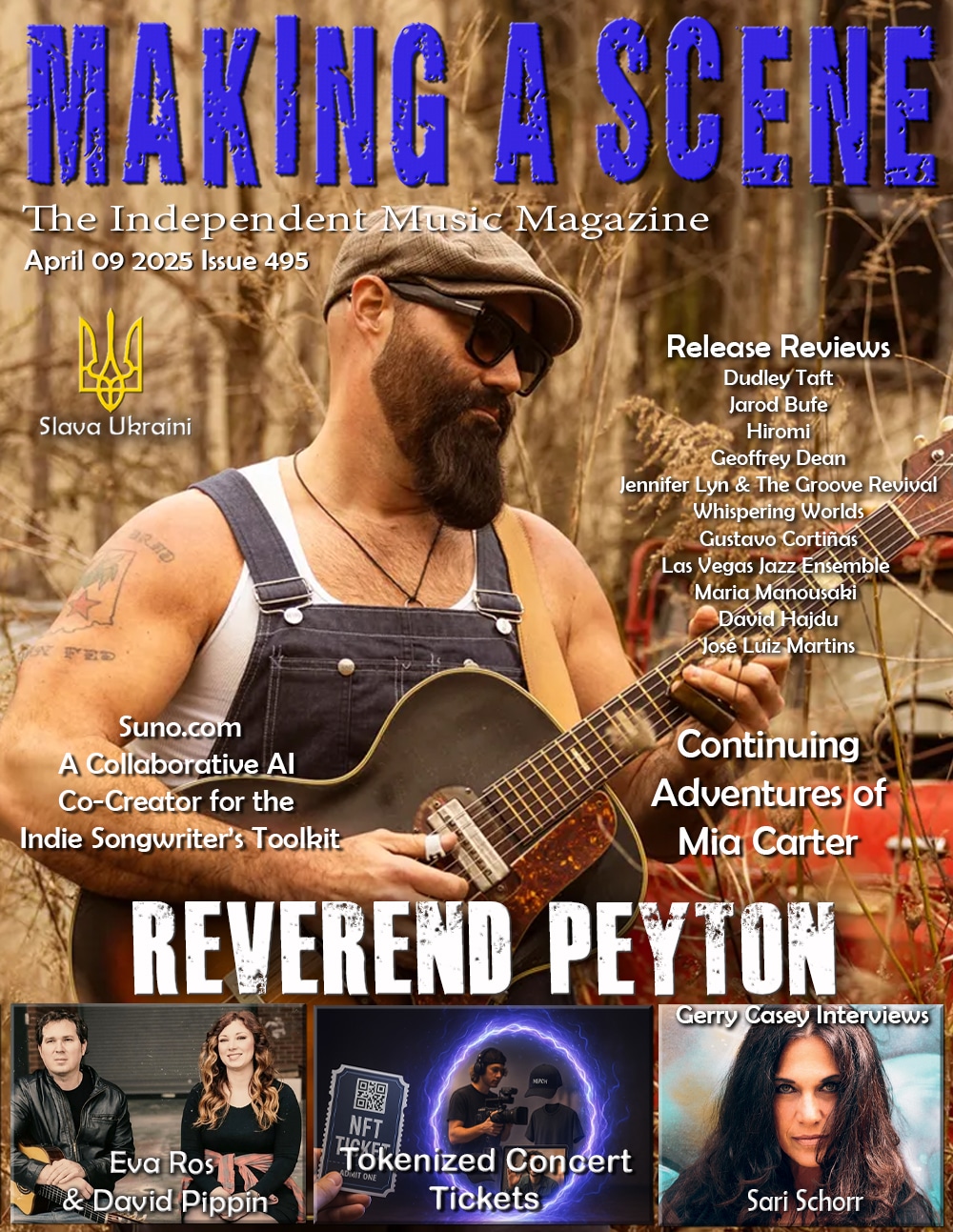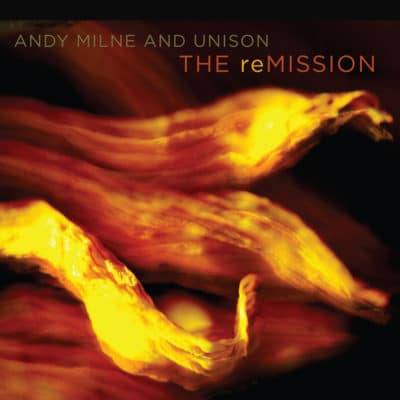Andy Milne and Unison The reMISSION
makAndy Milne and Unison
The reMISSION
Sunnyside
Pianist, bandleader and educator Andy Milne brings us The reMISSION, with his new trio UNISON. Stepping into piano trio performance for the first time, the album is a stunning shift in direction for the artist. In late 2017, a life-changing cancer diagnosis forced Milne into a period of reflection over his fruitful career, a reevaluation of his direction, and finally, remission. In the midst of this uncertainty was an unexpected offer (which he accepted), for a full-time professorship from The University of Michigan.
After conquering cancer, Milne seized the opportunity to tackle a musical venture that he has always found exciting, and at times daunting: the powerful intimacy of the piano trio format. JUNO award winner Milne brings a bold, imaginative sound to this pared down context, presenting fresh, original material written for this hallmark collaboration between himself, renowned drummer Clarence Penn and bassist John Hébert. Thus, the title both hails his success versus cancer and a new start musically.
Prior to this endeavor Milne’s focus was on composing for larger ensembles, best represented by his stellar work with his long-standing group Dapp Theory. Formed in 1998, Milne released five albums of inventive compositions for this outfit, the last of which, 2018’s The Seasons of Being, won ‘Group Jazz Album of the Year’ at the 2019 JUNO Awards. After twenty years with that esteemed quintet, Milne’s decision to create the trio Unison has yielded bold compositions that seem to emanate from within the pianist’s core, supported by a steadfast rhythm section made up of Penn and Hébert
While Milne’s path is the reverse of many pianists who begin their careers with a trio and move to larger configurations later, this decision has paid off by informing his trio sound with a structural and harmonic richness, and masterful interplay atypical to mainstream of the piano trio idiom. In the liners Milne speaks about the music, “My vision for UNISON has evolved since our first performance in 2017. I’ve endeavored to go deeper into honoring my influences and collectively we’ve been refining our musical interactions, although I if I say so, I felt like we started off in a pretty magical place. Some of the music presented here was composed or arrange specifically for the trio, and some found a new home here. Originally, I imagined UNISON might perform mainly jazz standards, exploring the influences that formed my foundation and entrance into jazz (Oscar Peterson, Bill Evans, Keith Jarrett, Ahmad Jamal.) Like the unexpected joys of an improvisational journey, our collective conversation guided out path towards the intersection of our combined sensibilities- joy, risk & trust. For now, here is where we live.”
They do begin, however, not with a standard but by paying homage to a jazz luminary, album with a spirited performance of McCoy Tyner’s “Passion Dance”, setting the tone for an album wrought with energy and exploration. The trio finds a sweet spot on this simmering rendition with crisp snare pops from Penn, fluid bass lines from Hébert and cerebral lines from Milne. From there it gets more pensive and cerebral in tone, with the original “Resolution,” originally composed for solo piano, freeing the rhythm section, allowing them to transform the piece with textural musings surrounding Milne’s melodic invention, a great example of dialogue at work among three strong players.
Compositions such as “Winter Palace”, and “Drive by – The Fall” highlight Milne’s appreciation of the simple beauty of nature, an appreciation perhaps revitalized by confronting a life-changing diagnosis. The ostinato driven “Winter Palace” is a masterwork of tension and resolution, encapsulating the feeling of a turbulent snowstorm. “Drive by – The Fall” most closely aligns to with the music of the Dapp Theory rhythm section writing which Milne was so accustomed to prior to forming the trio. The leader refers to this piece as the bridge between the two aesthetics. Fittingly and perhaps ironically, the track is sequenced squarely in the middle of the recording.
Bassist John Hébert lays the groove in “Dancing on the Savannah” which also prominently features the sensitivity and reactiveness of drummer Clarence Penn. Speaking to Penn’s excellence, Milne notes, “He and I have known each other since we both moved to NYC but had never performed together. Every time I heard him perform, I found myself fixated by how his sound, time and finesse elevated whatever band with whom he was performing.” Rounded out with Hébert on bass, this unit meshes well and interacts more democratically than most trios.
There is a wealth of information and long resumes for all in the trio which you should search out. Just briefly on each… A former student of Oscar Peterson, Milne has performed with a range of artists including Cassandra Wilson, Ralph Alessi, and Bruce Cockburn, and has composed, performed and produced scores for seven films by acclaimed actor/director William Shatner. A distinct and respected voice at the heart of New York’s creative jazz scene, Milne was at the center of the M-BASE Collective as a core member of saxophonist Steve Coleman’s bands during the 1990s. He is a Yamaha Artist and sought-after educator, serving as an assistant professor of music at The University of Michigan and the Assistant-Director at The School for Improvisational Music.
John Hébert, originally from New Orleans, has been a highly sought-after New York bassist since the mid-1990s. A former student of Rufus Reid, Hébert has collaborated extensively with pianists Fred Hersch and Andrew Hill, appearing on celebrated recordings from each pianist, among many others.
Clarence Penn is one of the top drummers in jazz. A composer, bandleader, and prolific producer, he performs regularly with Maria Schneider, Dave Douglas and Uri Caine. Since 1991 when he arrived in New York City, Penn has worked with a staggering array of A-list artists including Ellis and Wynton Marsalis, Betty Carter, Stanley Clarke, Steps Ahead, Makoto Ozone and Michael Brecker. His impressive discography includes several hundred studio albums, including Grammy-winning recordings from Randy Brecker and Maria Schneider, representing a 360-degree spectrum of jazz expression. For example, he is the drummer on Kandace Springs’ widely hailed recent release, The Women Who Raised Me.
Discover more from Making A Scene!
Subscribe to get the latest posts sent to your email.














































